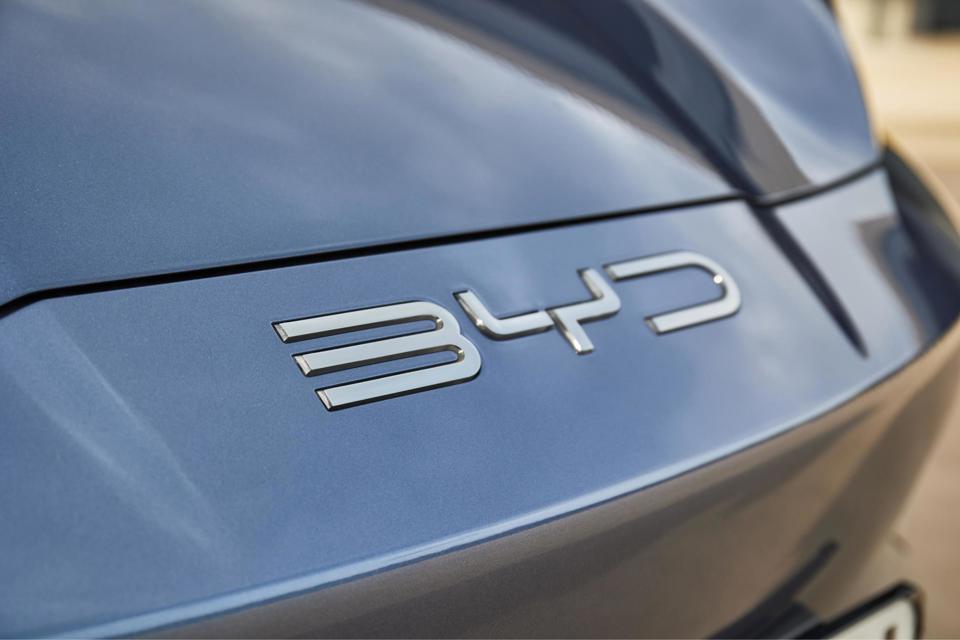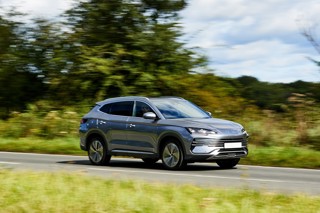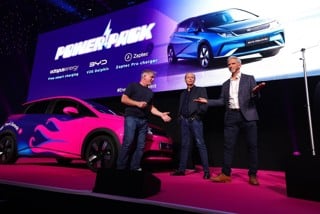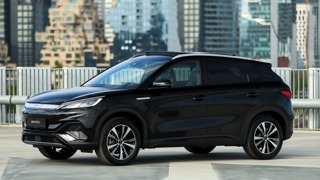BYD has struck a multi-market fleet deal with Uber that aims to bring 100,000 of its electric vehicles (EVs) on to the ride hailing platform.
The partnership is initially expected to offer drivers in Europe and Latin America access to “best-in-class” pricing and financing for BYD vehicles on the Uber platform and will expand to include markets across the Middle East, Canada, Australia, and New Zealand.
By working together, the companies aim to bring down the total cost of EV ownership for Uber drivers, accelerating the uptake of EVs on the Uber platform globally.
“As the largest global agreement of its kind, we’re thrilled about the benefits this partnership will deliver for drivers, riders, and cities,” said Dara Khosrowshahi, CEO of Uber.
“When an Uber driver makes the switch to an EV, they can deliver up to four times the emissions benefits compared to a regular motorist, simply because they are on the road more.
“Many riders also tell us their first experience with an EV is on an Uber trip, and we’re excited to help demonstrate the benefits of EVs to more people around the world.”
To support drivers going electric, the companies’ joint efforts may also include discounts on charging, vehicle maintenance or insurance, as well as financing and lease offers, based on what works best for drivers in a given market.
The two companies will also collaborate on future BYD autonomous-capable vehicles to be deployed on the Uber platform.
“Uber and BYD share a commitment to innovate towards a cleaner, greener world, and I am excited to work together towards that future,” said Chuanfu Wang, chairman and president of BYD.
Stella Li, executive vice president of BYD and CEO of BYD Americas, added: “We are elated to join forces with a global leader like Uber to not only accelerate the transition to electric vehicles but also to make green transportation accessible and affordable for everyone.
“This collaboration marks a new era in the electrification of urban mobility, and we look forward to seeing our cutting-edge EVs become a common sight on the streets of cities worldwide.”
ManMohan Sodhi, professor of operations and supply chain management at Bayes Business School (formerly Cass), believes Uber’s deal with BYD is a smart move for the company to lower the cost of a ride to the owner-driver, with potential upside for Uber without any capital costs.
“It is also a good deal for BYD as well for its cars to be seen worldwide, except for in the US, where Uber is working with Tesla, in part due to protectionist measures by successive US governments,” he explained.
“One main deterrent to EV adoption is the high initial cost. For Uber owner-drivers, the purchase cost will be lowered because of this deal. In any case, Uber has to convince only a small fraction of its 7.1 million drivers to buy 100,000 EVs over a few years as per this agreement.
“The other major obstacle to EV adoption is charging time. Given that an Uber driver does only 100-150 miles per day, all of which are local, even an EV with a small battery will be adequate for a 12-hour shift, allowing for adequate time for low-cost home- or street-based charging .
“There are no implications for self-driving cars in this deal as drivers are key as purchasers, and the deal has a worldwide span.”

























Login to comment
Comments
No comments have been made yet.